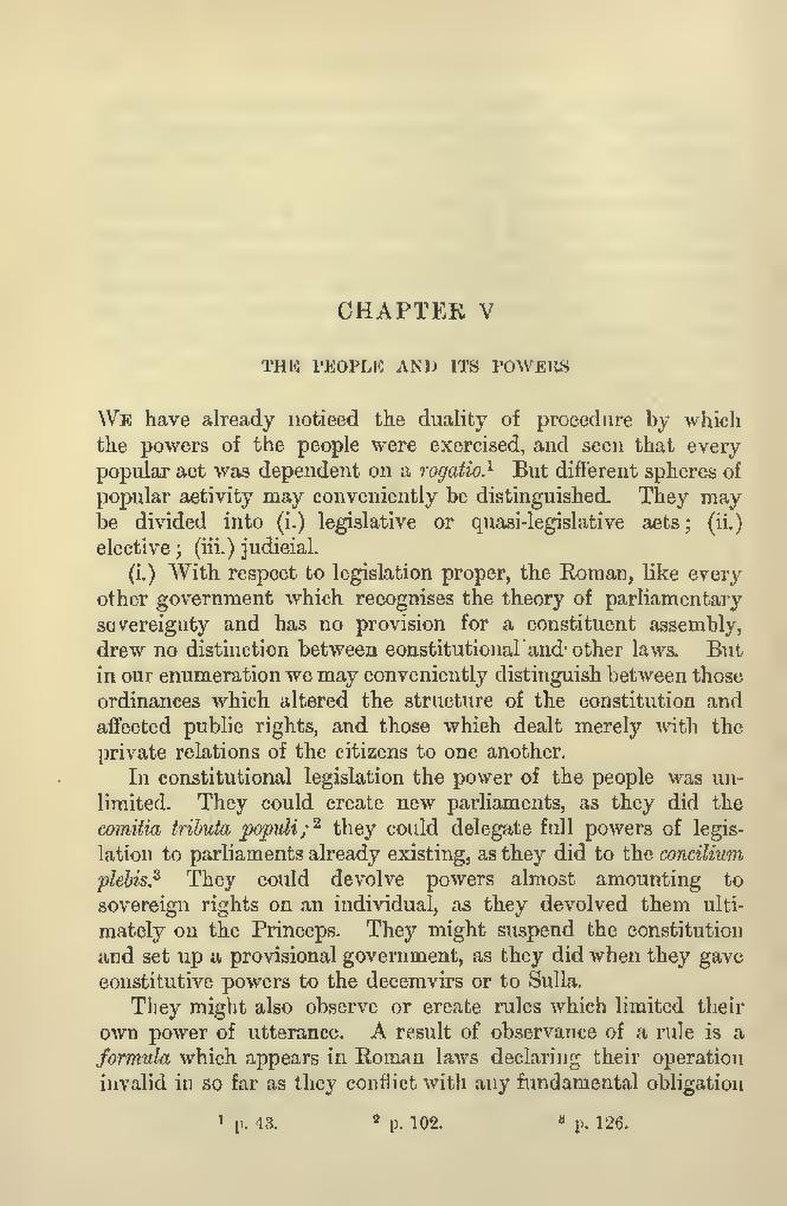CHAPTER V
THE PEOPLE AND ITS POWERS
We have already noticed the duality of procedure by which
the powers of the people were exercised, and seen that every
popular act was dependent on a rogatio.[1] But different spheres of
popular activity may conveniently be distinguished. They may
be divided into (i.) legislative or quasi-legislative acts; (ii.)
elective; (iii.) judicial.
(i.) With respect to legislation proper, the Roman, like every other government which recognises the theory of parliamentary sovereignty and has no provision for a constituent assembly, drew no distinction between constitutional and other laws. But in our enumeration we may conveniently distinguish between those ordinances which altered the structure of the constitution and affected public rights, and those which dealt merely with the private relations of the citizens to one another.
In constitutional legislation the power of the people was unlimited. They could create new parliaments, as they did the comitia tributa populi;[2] they could delegate full powers of legislation to parliaments already existing, as they did to the concilium plebis.[3] They could devolve powers almost amounting to sovereign rights on an individual, as they devolved them ultimately on the Princeps. They might suspend the constitution and set up a provisional government, as they did when they gave constitutive powers to the decemvirs or to Sulla.
They might also observe or create rules which limited their own power of utterance. A result of observance of a rule is a formula which appears in Roman laws declaring their operation invalid in so far as they conflict with any fundamental obligation*
